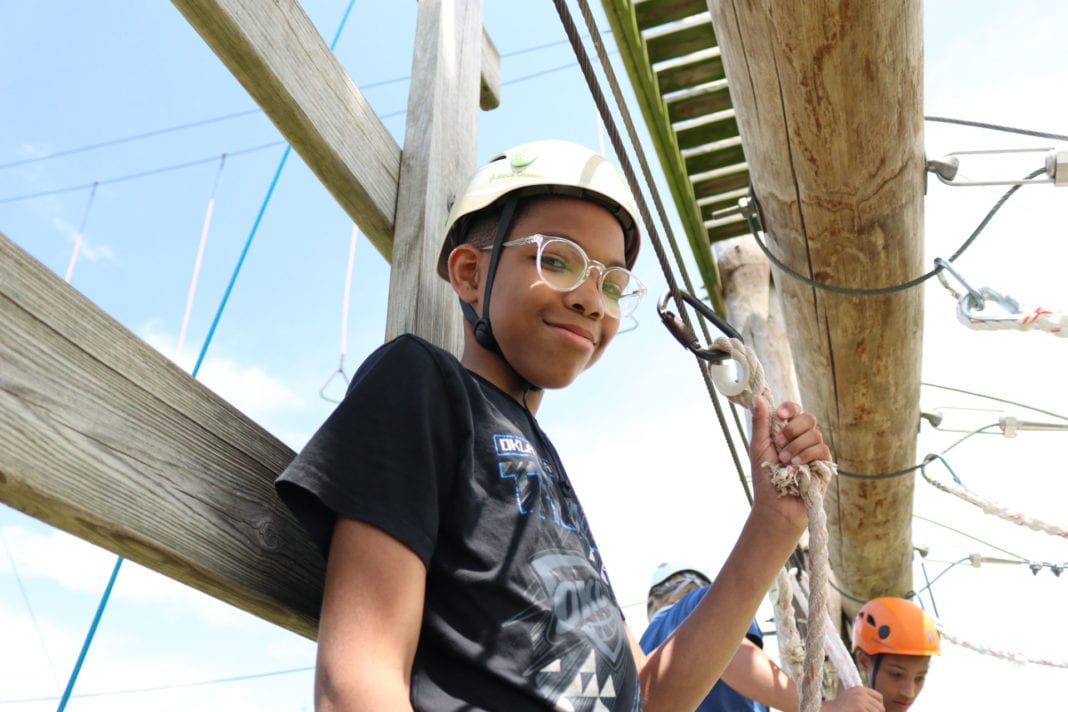After former President Donald Trump announced he would hold a campaign rally in Oklahoma on Juneteeth, “everybody’s eyes were on Tulsa,” says Sherry Gamble-Smith, president and CEO of the Black Wall Street Chamber of Commerce and chairman of Tulsa’s Juneteenth celebration.
Bowing to criticism, Trump changed the date to June 20, and a groundswell of support for the African-American community made the Juneteenth celebration, held the day before the rally, a rousing success.
Organizers then created the Tulsa Justice Fund, “for people to donate to the cause of standing up for justice, with all that was going on and is still going on,” says Gamble-Smith.
Donations allowed the committee to ramp up the entertainment, engage the Rev. Al Sharpton as keynote speaker and “pass out a lot of hand sanitizer and masks,” says Gamble-Smith.
The daylong event on Greenwood Avenue attracted people of all races and ethnicities, some of whom had never heard of Juneteenth. This holiday, also known as Emancipation Day, commemorates June 19, 1865, when soldiers traveled to Galveston, Texas, to inform residents that President Abraham Lincoln had freed those enslaved, and that slave owners had to comply with the Emancipation Proclamation.
This year’s Juneteenth celebration will be centered on the Tulsa Race Massacre centennial, and the Tulsa Justice Fund will help with new events, such as an art exhibit and short film festival.
In Oklahoma City, 17 black-led organizations were awarded grants in November by the OKC Black Justice Fund, an initiative designed to be a quick response to calls for racial equity after the death of George Floyd in police custody in Minneapolis.
Cecilia Robinson-Woods, superintendent of Millwood Public Schools, served on the committee that disbursed nearly $300,000 in grant money, donated primarily by Oklahoma City foundations. Robinson-Woods said 60 of the 66 organizations that submitted requests were black-led.
“I was surprised at how many organizations were working toward social justice in the black community,” says Robinson-Woods. “I learned a lot about the spirit of the black community.”
The applicants were striving “to equip our residents to take advantage of opportunities, to be informed, to have good health,” she continues.
Angela Hawkins, MD, is a member of the Oklahoma Black Physicians Alliance, which was awarded a grant for start-up costs.
“Our goal is to improve the health care disparities that we are seeing in the black community,” says Hawkins. “To create awareness, help the community get more access to treatment, and empower people to feel more comfortable advocating for themselves.”
Self-advocacy, Hawkins says, includes getting appropriate preventive treatment, keeping chronic conditions under control and knowing the right questions to ask health care providers.
The COVID-19 pandemic delayed plans for a health fair, but the OBPA has had a good response to educational videos posted on its Facebook page.
“Historically, when you look at healthcare in African-American communities, we started out as having separate clinics that were poorly funded. The percentage of black patients insured is still less than the general population,” says Hawkins. “And there is still some level of bias in healthcare,” such as how people of color are treated for pain in hospital emergency rooms.
OBPA and other grant recipients look to take steps toward a more equitable Oklahoma.


























